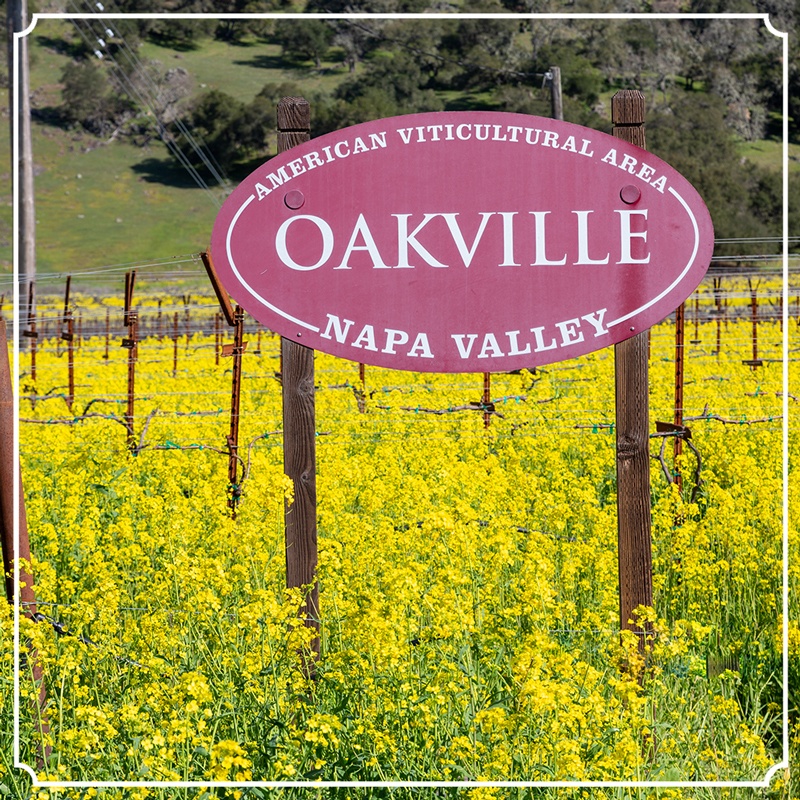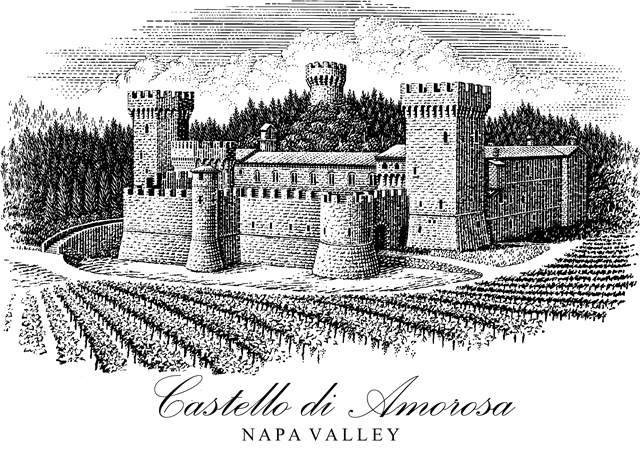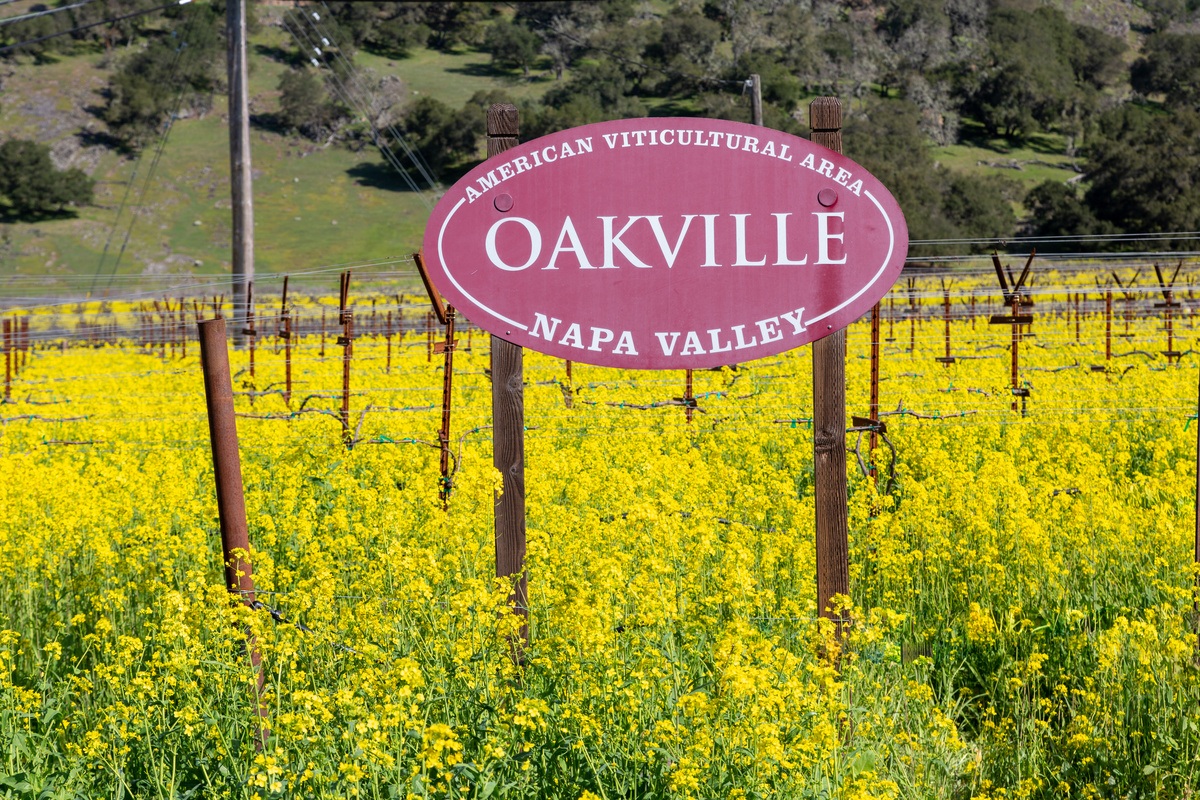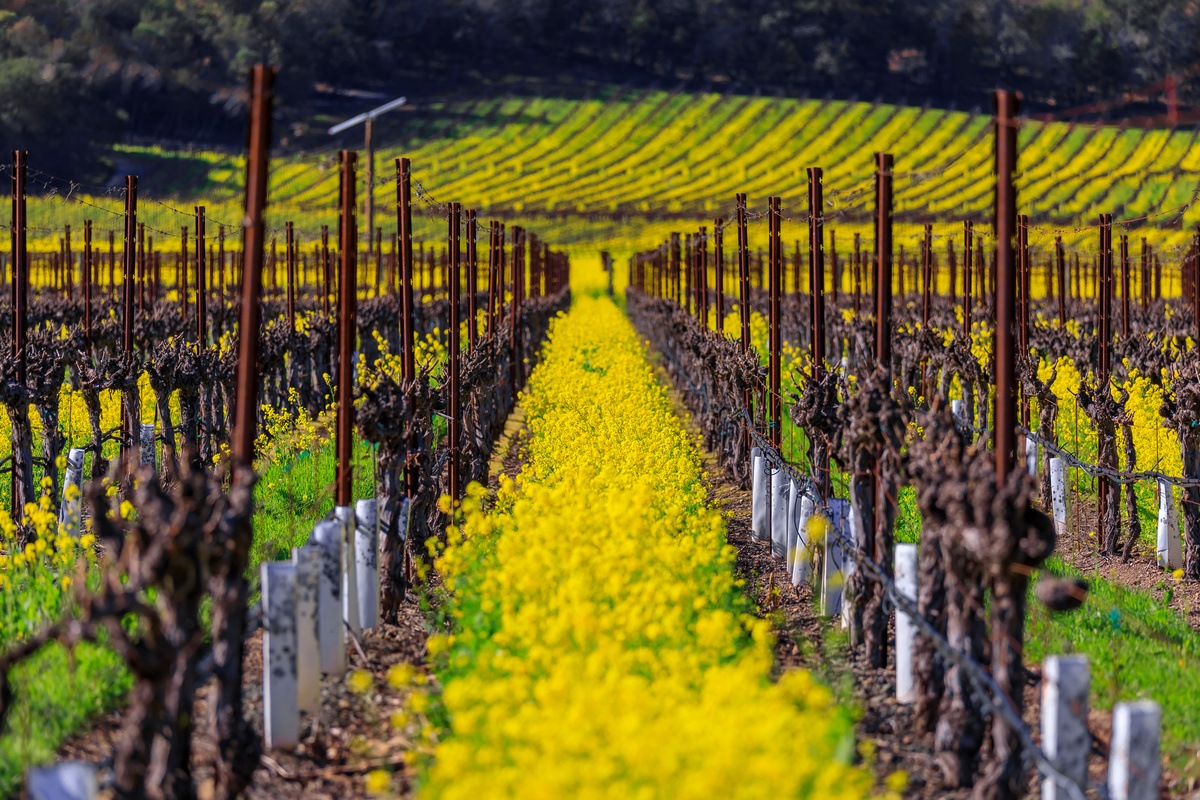Oakville Collection

On Hallowed Ground
Finesse and attention to detail align to make the Oakville AVA truly special. History and mystique form the backbone of this famed growing region. A unique combination of soil, topography and climate join together here, creating an environment that makes Oakville a viticultural treasure. Napa Valley Oakville wineries are pure and transparent, sculpting the essence and adding subtle nuances to express each unique site.
A History of Excellence
In the heart of Napa Valley, California lies the town of Oakville. Once a steam train stop in the late 1800s, Oakville owes its name to the dense groves of native oak which once covered the area. Today, the Oakville name is synonymous with excellence in winemaking. H. W. Crabb planted the first vineyard here in 1868, 240 acres of land close to the Napa River that he named To Kalon. By 1877, Crabb was producing 50,000 gallons of wine per year.
In 1903, the United States Department of Agriculture established an experimental vineyard station in Oakville. Known as “Oakville Station”, the vineyard has been operated by the University of California at Davis for more than 50 years. The department has conducted critical viticulture research here, including trials of clones, rootstocks, vine spacing, pruning levels, irrigation and more.
The Oakville AVA is 5,700 acres in total and one of the largest vineyard areas in Napa Valley with 5,000 of those acres planted. Oakville’s soils are primarily gravelly and sandy, but a small portion is a mix of clay and sandy loam. It wasn’t until 1993 that the Oakville AVA was officially declared a sub-appellation of Napa Valley.
Oakville AVA: Cult Status
Oakville AVA’s status as a world-class grape-growing region is solidified in part because of the number of great Napa Valley wineries that call the region home. Known for its pricey cult wines, the excellent publicity of Oakville’s wines can partly be attributed to the unique quality of its soils and climate. This collection of family-owned vineyards is often tended to by meticulous growers.
Producers here focus on cultivating limited parcels of Cabernet Sauvignon and Merlot and smaller parcels of Petit Verdot, Cabernet Franc, Zinfandel, Sauvignon Blanc, and Chardonnay. Bordeaux-style blends are especially popular here and some critics even compare these wines to some of the finest Old-World Bordeaux labels. Critics claim these Oakville wines strike a perfect balance between lively acidity and sweet fruit. Unlike many other bold red wines produced in the Napa Valley, which tend to taste quite jammy and fruit-forward, Oakville wines are thought to be more complex and earthy. These age-worthy Cabernet routinely exhibit aromas that range from boysenberry, ripe blackberry, and blueberries, with hints of spice, tobacco leaf, and leather. When it comes to growing Cabernet Sauvignon, the region is just right. This helps the Oakville to perfectly express the essential qualities of Cabernet Sauvignon in deep, complex wines that last for decades.
Old World Heart & New World Style
During the growing season, temperatures in the low-to-mid 90s are common. Nights cool down dramatically, preserving acidity in the grapes. Cool marine fog can linger until late morning, chilling the fruit and protecting it from the morning sun.
Annual rainfall is about the same as Bordeaux, around 35 inches per year. In contrast to Bordeaux, Oakville gets most of the rain in winter. The climate and soils of Oakville allow Cabernet Sauvignon to reach perfect ripeness every year. Known for its bedrock soil, the result of sedimentary deposits from the hills that form Napa Valley. The soil is gravelly, with exceptionally good drainage. Wind and fog arriving from San Pablo Bay affect the morning and evening hours, but their effects are limited by the intervening Yountville Mountains. The western edge features the famous gravelly alluvial fans that include Martha’s Vineyard and to Kalon.
Oakville’s soils can vary considerably. In the east hills the soils are made up of rust red, volcanic rock and iron, mixed into the gravel and loam. A smaller portion of the AVA is a mix of clay and well-drained sandy loam.
Oakville AVA Comes To The Castle
We are pleased to announce the two newest additions to the Castle family. Our 2018 Oakville, Cabernet Sauvignon & our 2018 Oakville, Red Blend both produced in the world-famous growing region.
2018 OAKVILLE
Cabernet Sauvignon
Napa Valley
This limited production Cabernet Sauvignon comes from the fabled growing region of Oakville. Located in central Napa Valley, Oakville has been noted for its ability to produce award winning cult wines. The wine exhibits hints of opulent dark cherries, blackberry, spice box and espresso bean. Backed by silky tannins and a great mouthfeel. Give the wine time to develop and you will be rewarded with additional layers of complexity.
2018 OAKVILLE
Red Blend
Napa Valley
This Bordeaux style blend is open and approachable with soft textures. Layers of dark red fruits, licorice, black currant, anise and vanilla are present in the blend. This limited production wine hails from the Oakville AVA, one of the most respected growing regions in the world.






